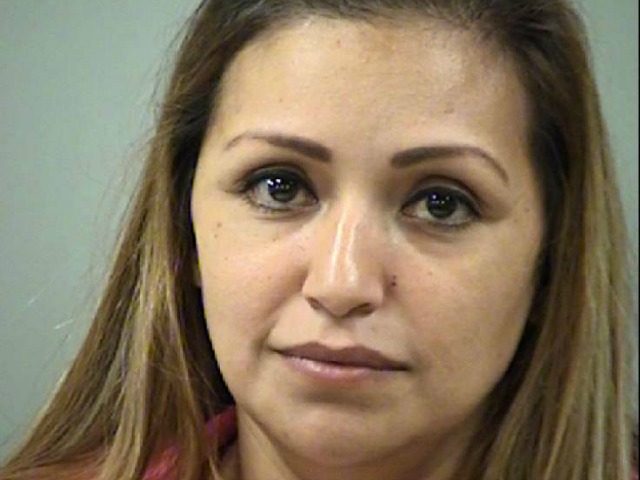38-year-old Traci Lorraine Aragon from San Antonio, Texas, was arrested on Wednesday for allegedly posting revenge porn of her boyfriend following a breakup.
Aragon reportedly posted the material on Facebook in an attempt to ridicule her ex-boyfriend after he ended their relationship, prompting a police investigation which ended in her arrest.
“According to her arrest affidavit, the victim of the revenge porn postings recently ended his relationship with Aragon. After the break up, Aragon distributed several nude photos of him to his friends and posted them on Facebook,” reported the San Antonio Express-News. “When the victim asked Aragon to take the photos off Facebook, Aragon allegedly ‘ridiculed and insulted’ him, and told him she would ‘blast him if he messes with her.'”
Aragon is currently in jail on a $2,000 bond, facing charges of “publishing intimate material,” which her now ex-boyfriend reported late last month.
In April, Facebook introduced an anti-revenge porn feature to their platform, creating a system to detect and block known illegal images.
Despite this, a May report indicated that the social network was “flooded” with cases of revenge porn and sextortion.
According to the report, Facebook assessed nearly 54,000 cases of the crime in just a month, with 33 cases involving children.
In an interview with Breitbart Tech last month, internet privacy lawyer Daniel Szalkiewicz also claimed Facebook’s policies on the issue were broken.
“The service providers turn around and say ‘yes we removed the images’, but what they don’t do is remove the accounts,” explained Szalkiewicz. “Let’s say someone created a fake Facebook account using my name, and they put my naked photographs up there. I report the naked photographs to Facebook, Facebook will take down the photographs, but they leave the fake account with my name up there.”
“So that’s almost as damaging, obviously, because they allowed somebody to make a fake account about you,” he continued. “Then they make you jump through additional hoops, including sending them a copy of your driver license.”
“Facebook is very difficult as well because they don’t provide you with a direct line of communication like Google Legal does,” Szalkiewicz said. “They make you sign on to the service, and then they make you report one of three things. If you’ve ever actually looked through the process, it’s very complicated and difficult.”
Charlie Nash is a reporter for Breitbart Tech. You can follow him on Twitter @MrNashington or like his page at Facebook.

COMMENTS
Please let us know if you're having issues with commenting.